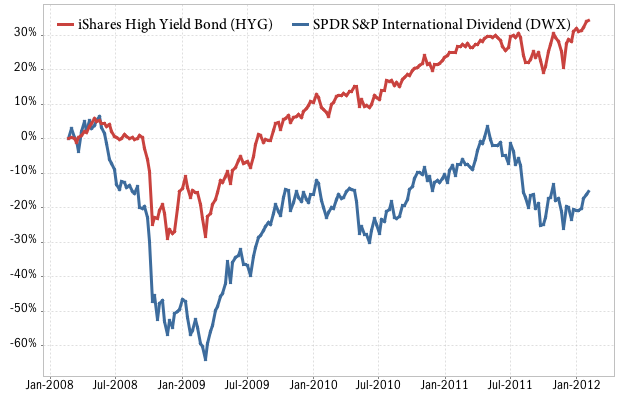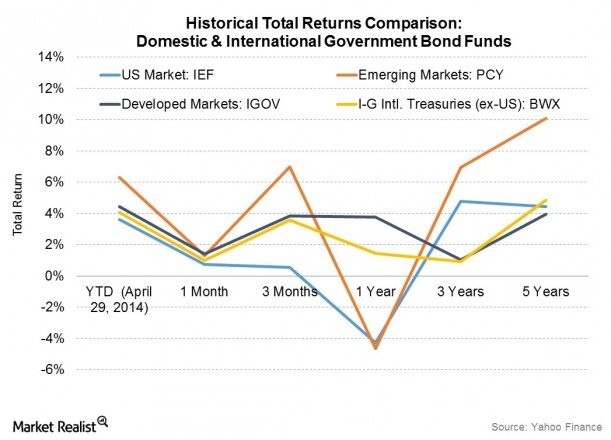Bond Funds v Bonds
Post on: 20 Июль, 2015 No Comment

Bond Fund Advantages:
1. Diversification: By combining the funds of many investors into one investment vehicle, bond funds provide diversification to investors who may not have the capital to buy enough bonds to achieve that diversification on their own. Most bond funds do not have more than 2% of their assets invested in any particular bond issuer, so if there is a default it is not likely to be a catastrophic event for the fund or its investors.
Very High
2. Better Pricing: Bond market professionals tend to get much better pricing when buying and selling bonds. When buying a bond individual investors tend to pay anywhere from half a percent to five percent more than a professional. This is particularly true for bond purchases under $50,000.
3. Professional Management: Many investors do not want to spend the time to learn all the ins and outs of the bond market or do the research required to find value in individual bonds.
4. Convenience: In addition to letting the bond fund company take care of the research and logistics of buying individual bonds, bond funds also give investors the option to automatically reinvest dividends and capital gains distributions. If an investor in individual bonds wants to take full advantage of compound interest. then they must immediately buy more bonds when they receive interest payments or a bond matures.
4. Monthly Dividends: Most Individual bonds pay interest once every 6 months. Most bond funds pay interest monthly or quarterly. This is not only an advantage to investors that would like to receive a more regular income stream, but also allows compounding to happen more regularly which can increase returns.
Bond Fund Disadvantages
Most bond funds are required to maintain a constant duration. For example, a long term government bond fund will always hold long term government bonds. They do this by selling the bonds they hold as they move towards maturity and replacing them with new bonds that are further away from maturity. Interest rates change over time, so when the fund sells the existing bonds in the portfolio the new bonds they replace them with are likely to have a different interest rate. This creates several disadvantages:
1. Interest Rate Risk: All bonds and bond mutual funds have interest rate risk, which is the risk that interest rates will rise, causing the value of the bonds in a portfolio to fall. If interest rates increase, an investor having to sell a bond or bond fund would receive less than their initial investment. With individual bonds however, you can eliminate interest risk by simply holding the bond to maturity. When a bond matures, assuming there is no default, an investor will receive the bond’s full face value. As bond mutual funds do not generally hold bonds until maturity, bond mutual fund investors do not have the option of eliminating interest rate risk. (There are some exceptions to this such as Fidelity’s Defined Maturity Fund )

2. Unpredictable income stream: There is no way to know with certainty what interest rates are going to be in the future. As a bond fund changes the bonds it holds, the interest payments of the fund will also change. A fund’s interest payments will fluctuate up and down on a monthly basis in ways which are not necessarily predictable at the time of purchase.
When you buy a bond with a fixed coupon payment (most bonds), you know exactly how much money you are going to receive, and when you are going to receive it.
3. Tax Bill Uncertainty. As a bond mutual fund sells bonds a taxable capital gain or loss is created. If you buy an individual bond and hold it to maturity you do not have to worry about capital gains and losses, as long as there is not a default. You can learn more about taxes on bond funds here .
Want to learn more about Bond Mutual Funds? Visit the Bond Funds Section here at Learn Bonds. If you want to learn more about buying individual bonds go here .
Learn how to generate more income from your portfolio.














